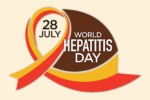Removing Race from Diagnosing Kidney Disease and Addressing Health Inequities

Story courtesy of National Kidney Foundation
COVID-19 and its disproportionate impact on people of color revealed the continued social and racial inequities that still exist in our healthcare system today. These continued racial inequities in this country have led to serious discussions in the medical community regarding the use of race in medicine.

Background
Diagnosing kidney disease (also known as chronic kidney disease or CKD) relies on a test called an estimated glomerular filtration rate (eGFR). More than twenty years ago, race was added into the calculation based on the research at the time to better diagnose Black or African American people. Unfortunately, it had the opposite effect and contributed to making African American patients appear healthier than they were, unintentionally contributing to the under-diagnosis and under-treatment of kidney disease in Black patients.
Development of NKF-ASN Task Force and Goals
A little over a year ago, the National Kidney Foundation (NKF) and the American Society of Nephrology (ASN) formed a joint task force to reassess the inclusion of race in the diagnosis of kidney disease. Both organizations have repeatedly asserted that race, is a social, not a biological, construct. The task force’s goal was to replace the current race-based approach with something race-free that is accurate, representative, unbiased, and able to be implemented easily in laboratories throughout the nation. After ten months of research and analysis, open public comment periods, and debate, the joint task force emerged with a unanimous decision to recommend the adoption of the new eGFR 2021 CKD-EPI creatinine equation that estimates kidney function without a race variable. This new eGFR calculation may impact critical decisions in kidney care management, patients on the transplant waitlist and medicine dosing. NKF will now begin working with laboratories and health systems throughout the country to ensure that the new race-free approach is implemented as quickly as possible.
Yet, having a race-free way to diagnose kidney disease doesn’t mean that inequities in kidney care have been eliminated. We must do more to identify strategies and work collaboratively to decrease disparities in the identification, management and treatment of CKD. NKF chapters in Missouri (Kansas City & St. Louis) are addressing inequities in kidney care by convening healthcare leaders and stakeholders from across the state on June 9, 2022 in partnership with the Missouri Kidney Program to increase testing and identification of kidney disease at populations most at risk. The goal is to develop a roadmap and identify solutions that address disparities and social influences, which dictate poor health outcomes. We continually work to find ways that better support patients who are managing this life-changing chronic condition.

It’s our hope that our efforts to address health equity, which include working with healthcare institutions to adopt the race free eGFR equation, working with laboratories to implement standardized testing measures for CKD, identifying opportunities for earlier testing and management of CKD, and advocating for policy changes will advance the quality of healthcare for ALL patients.
To learn more about the race-free eGFR equation visit kidney.org. To learn more about the June 9, 2022 convening, visit https://www.kidney.org/mo-ckd-conference-2022






